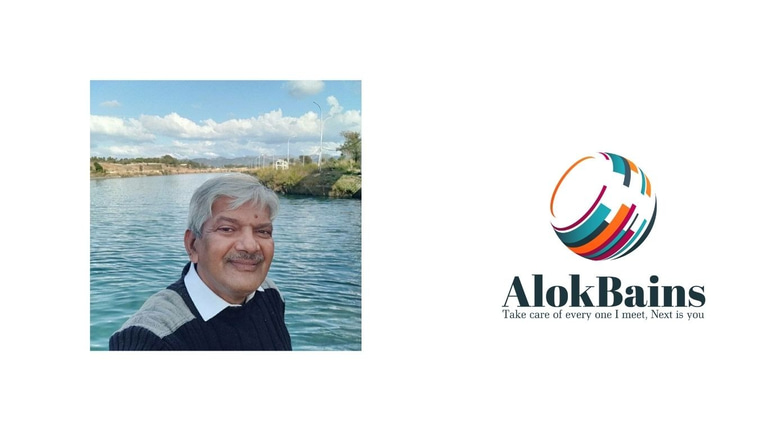Hospital Pharmacists Job Specifications Work Load Qualifications Experience
Hospital pharmacist job specifications, workload, qualifications and experience, to be studied in chapter hospital Pharmacy under Hospital and Community Pharmacy for D Pharm course and Pharmacy Practice for B. Pharm course
HOSPITAL PHARMACY
Alok Bains
4/9/20239 min read


Hospital Pharmacy
Job Specifications, workload, qualifications and experience requirements
Complied by: Alok Bains
In a hospital, there are several categories of pharmacists. PCI mentioned the job specifications and workload requirements of five types of pharmacists in a hospital. These are Pharmacists, Sr. Pharmacists, Chief Pharmacists, Community Pharmacists, and Drug Information Pharmacists. PCI prescribes their qualifications, job specifications/responsibilities/working requirements etc.
(A) Pharmacists:
They provide technical services and logistics support for the effective delivery of pharmaceutical care and services. They will work in a hospital pharmacy or dispensary or warehouse. Sr. pharmacist/Dy chief pharmacist is a first-level supervisor for pharmacists in a hospital. Pharmacist's job specifications and workload assigned to perform in a hospital pharmacy to each job are as below:
Dispense medicines to patients on the prescription of the registered Medical practitioner. Work Load in Percentage of Time: 35%.
Provide counselling and health education to the patient. Work Load in Percentage of Time: 10%
Assist in the management of the pharmacy department. Work Load in Percentage of Time: 10%.
Maintain records of ADR. Work Load in Percentage of Time: 5%
Provide pharmaceutical services to inpatients. Work Load in Percentage of Time: 5%
Formulate extemporaneous preparation and specialized products. Work Load in Percentage of Time: 5%
Discuss with clinicians/health professionals to provide better patient care. Work Load in Percentage of Time: 5%
Conduct prescription surveys and propose changes to the Essential Drug List. Work Load in Percentage of Time: 5%
Attend emergency duty as and when required Work Load in Percentage of Time: 5%
Indent and check the drugs and non-drugs. Work Load in Percentage of Time: 5%
Maintain records of the equipment and other supplies of the unit. Work Load in Percentage of Time: 5%
Documentation of records and literature Work Load in Percentage of Time: 5%
Pharmacist's job specifications and workload assigned to perform regarding essential drugs, each job are as below
Review of quantification of annual drug requirements of the country/state. Work Load in Percentage of Time: 20%.
Verification of the annual indents received from storekeepers of different hospitals. Work Load in Percentage of Time: 20%.
To visit the hospitals for inventory monitoring, physical verification and analysis.: Work Load in Percentage of Time: 15%
To correspond with suppliers on the supply of drugs and non-drugs. Work Load in Percentage of Time: 15%
To discuss issues related to Pharmaceutical supplies with the other health staff. Work Load in Percentage of time: 10%
To correspond with the different hospitals and mobilize the shortly expiring drugs. Work Load in Percentage of time: 10%
Miscellaneous work, Work Load in Percentage of time: 10%
(B) Sr. Pharmacists:
They provide technical services and logistics support for the effective delivery of pharmaceutical services. They ensure efficient production and supply management. They enforce regulations and promote quality assurance of drugs and other medical supplies. They also manage the pharmacy services at a hospital. They will work in a hospital pharmacy or dispensary or warehouse. Chief pharmacist/Dy. Chief of the respective fields is the first-level supervisor of Sr. pharmacists in a hospital.
Sr. Pharmacist's job specifications and workload assigned to perform in a hospital pharmacy to each job are as below:
Develop plans on pharmaceutical supplies and mobilize necessary funds.: Work Load in Percentage of Time: 15%
Plan and coordinate departmental activities: Work Load in Percentage of Time: 15%
Manage pharmaceutical services at a hospital: Work Load in Percentage of Time: 10%
Monitor and provide supervision to the staff including student trainees: Work Load in Percentage of Time: 10%
Supervise and monitor the ADR of inpatients: Work Load in Percentage of Time: 10%
Participate in educational and research programs: Work Load in Percentage of Time: 10%
Conduct Antibiotic Resistance studies. Work Load in Percentage of Time: 10%
Go ward rounds and Provide inpatient pharmaceutical services. Work Load in Percentage of Time: 10%
Interact with the specialist and prescribing clinicians to discuss pharmacotherapeutics. Work Load in Percentage of Time: 5%
Provide continuing education and assist superiors: Work Load in Percentage of time: 5%
Supervise and train subordinates (Pharmacists and pharmacy technicians and other health workers): Work Load in Percentage of time: 20 %
Sr. Pharmacist's job specifications and workload assigned to perform a duty regarding supply management in a hospital pharmacy to each job are as below:
Monitor quantification, procurement and distribution of medical supplies. Work Load in Percentage of time: 20 %
Monitor indents and suppliers. Work Load in Percentage of time: 20 %
Supervise subordinates and train other staff: Work Load in Percentage of time: 20 %
Prepare plans and budget: Work Load in Percentage of time: 20 %
Provide continuing education to the health workers: Work Load in Percentage of time: 20 %
In addition to the above job specifications, they will assist superiors as and when required.
(C) Chief Pharmacist:
The purposes of the appointment of a chief pharmacist are
To provide advanced technical services and logistics support for the effective delivery of clinical services.
To assure efficient production and supply management;
To ensure regulation and quality assurance of the drugs and other medical supplies.
To manage the pharmacy department of the hospital.
The chief pharmacist works in a hospital pharmacy or dispensary or warehouse. The head of the hospital or department is the first-level supervisor of the chief pharmacist. The chief pharmacist's job specifications and workload assigned for each job are as below:
Coordinate planning and implementation of relevant activities including mobilization of resources.: Work Load in Percentage of Time: 40 %
Conduct research activities and facilitates international networking: Work Load in Percentage of Time: 20 %
Conduct supervision and training for subordinates and health workers: Work Load in Percentage of Time: 15 %
Manage the pharmacy department of a hospital: Work Load in Percentage of Time: 10 %
Monitor and evaluates relevant activities: Work Load in Percentage of Time: 10 %.
Carry out any other duties assigned by superiors: Work Load in Percentage of time: 5 %
(d) Community Pharmacist
They provide technical services and logistics support for the effective delivery of pharmaceutical care and services.
Job specifications
dispensing prescription medicines to the public;
checking dosage and ensuring that medicines are correctly and safely supplied and labelled (pharmacists are legally responsible for any dispensing errors);
supervising the preparation of any medicines (not all are supplied ready made-up by the manufacturer);
keeping a register of controlled drugs for legal and stock control purposes;
liaising with doctors about prescriptions;
selling over-the-counter medicines;
counselling and advising the public on the treatment of minor ailments;
advising patients of any adverse side effects of medicines or potential interactions with other medicines/treatments;
preparing dosette and cassette boxes, usually for the elderly but also for those with memory/learning difficulties, where tablets are placed in compartments for specified days of the week;
undertaking Medicine Use Reviews (MUR), an advanced service to help patients understand how their medicines work and why they have to take them
providing a prescription intervention service;
managing a needle and syringe exchange;
dispensing emergency hormonal contraception
measuring and fitting compression hosiery;
monitoring blood pressure and cholesterol levels;
offering a diabetes screening service;
providing pregnancy testing;
arranging the delivery of prescription medicines to patients;
overseeing the ordering and safe storage of medical products;
maintaining computerised records;
managing, supervising and training pharmacy support staff;
selling healthcare and other products, such as toiletries, cosmetics and photographic items;
budgeting and financial management;
promoting sales and developing the business;
keeping up to date with current pharmacy practice, new drugs and their uses.
(e) Drug Information Pharmacist
They provide patient care that optimizes the use of medication and promotes health, wellness and disease prevention. They work in Hospital Pharmacy /dispensary /teaching hospitals/other healthcare settings
Job specifications
Provide drug information services.
Supervise pharmacy/PharmD students during the drug information rotation.
Participate in the administrative activities of the drug information centre along with other faculty/ health care providers.
Develop and assist in developing drug monographs and reviews for the Pharmacy & Therapeutics Committee.
Write and edit drug information centre publications such as newsletters and other publications
Contribute to continuous quality improvement efforts related to drug information services.
Contribute to didactic drug information courses.
Complete at least 1 major research project related to drug information or other areas of interest that is suitable for publication.
Present research activity at various forums.
Participate in Pharmacy & Therapeutics Committee meetings
Contribute to drug use management activities (DUE/DUR).
Work with other faculty on drug information service-related projects as needed.
Attend a major/ national pharmacy meeting
Participate in entrepreneurial activities of the drug information centre.
The pharmacy council of India has also fixed qualifications and experiences requirements for different levels of pharmacists
A. Pharmacists
Educational qualifications: Diploma in Pharmacy/ Bachelor in Pharmacy.
Training: There is no requirement for training or experience to be appointed as a pharmacist.
Knowledge of language(s) and other specialized requirements: Should be fluent in English and regional language
B. Sr. Pharmacists
Educational qualifications: Registered pharmacist and Diploma in Pharmacy with a minimum of 4 years experience as a Pharmacist. or Bachelor in Pharmacy / Doctor of Pharmacy ( Pharm.D).
Training: Short courses in Drug Administration, Pharmaco-economics, Pharmaco-Epidemiology, Toxicology, Research and Project design.
Knowledge of language(s) and other specialized requirements: Should be fluent in regional languages and English and the ability to converse in other dialects is a good asset.
C. Chief pharmacists:
Normally chief pharmacist is appointed by the promotion.
Educational qualifications: Registered pharmacist with a diploma in pharmacy and a total of 10 years of experience as a pharmacist in a hospital including 4 years experience as Sr. Pharmacist or equivalent experience.
Alternate, The Chief pharmacist is also appointed by direct appointment. Under this condition, the followings are the minimum qualifications
A registered pharmacist, Bachelor of Pharmacy and 5 years experience in a hospital including 4 years experience as Sr Pharmacist or equivalent experience. OR
Registered pharmacist and Master in Pharmacy or Pharm D and 4 years experience as Sr Pharmacist or equivalent experience
Training: Short course in organizational management, human resource development and management, and financial management and policies, research and specialization in pharmaceutical-related fields.
Knowledge of language(s) and other specialized requirements: Fluent in regional languages and English. Should be also conversant in government policies, rules and regulations.
d. Community Pharmacist
Educational qualifications: Diploma in Pharmacy/ Bachelor in Pharmacy.
Training: None.
Experience required: No experience is required.
Knowledge of language(s) and other specialized requirements: Should be fluent in English and regional language.
e. Drug information pharmacists
Educational qualifications: Bachelor in Pharmacy / Pharm.D Experiences: Does not require any experience.
Training: Drug information residency.
Knowledge of language(s) and other specialized requirements: Should be fluent in English and regional language
Complied by: Alok Bains
Hospital Pharmacists
Job Specifications, Workload, Qualifications and
Experiences
